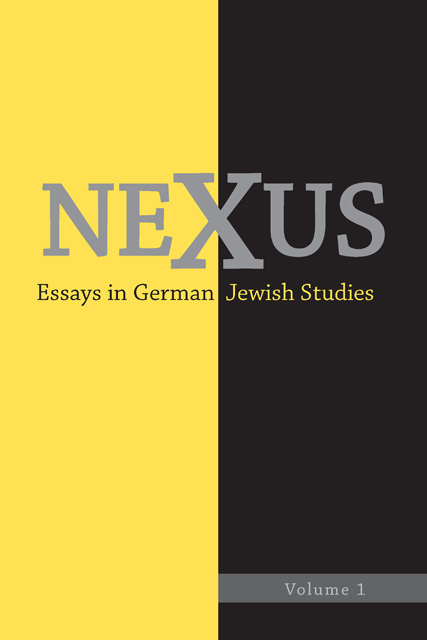Happiness and Unhappiness as a “Jewish Question”
Published online by Cambridge University Press: 10 February 2023
Summary
The debate about “happiness” was a central question of nineteenth-century German thought. That Jews in Germany also engaged in this debate is of little surprise. That “Jewish” psychoanalysts and cosmetic surgeons during the long turn-of-the-century reflected a “Jewish” turn only means that they provided alternatives to the question of how or whether one can truly become happy.
HAPPINESS IS A “peculiarly modern, Western idea,” as Richard Sennett has observed. Actually happiness is multiple, conflicting ideas — often changing from context to context with each change presaging a cascade of different meanings and interpretations. In this essay I shall try to link a number of them in a manner that is not causal but I hope rather evocative. I want to begin with a specific “Jewish” turn in the history of the concept of happiness at the close of the nineteenth century (one that turns out not to be very “Jewish” in its origin) and conclude with some thoughts on Michael Jackson and our need to understand happiness in the twenty-first century.
The close of the nineteenth century was for European — especially for German — Jews the best of times and the worst of times. Civil emancipation, increased economic and social mobility, and access to secular education were all balanced by the rise of political antisemitism (which desired to reverse civil emancipation) and the reappearance of anti-Semitism in the form of the “blood libel.” Political realities in the Russian Empire led to massive pogroms and the flight of millions of Eastern European and mostly unacculturated Jews westward to settle in the cities of Western Europe and beyond. Yet these political realities also led to a wide-ranging Jewish response, from Zionism to Jewish political parties (at least in the Austro-Hungarian Empire). This snap-shot is both reductive and crude — but it outlines a brutal contradiction in the mental lives of Jewish intellectuals. For them, happiness was a complex and very “un-Jewish” thing. Kaufmann Kohler’s comment on the meaning of happiness in the Talmud applies very much to the age in which he himself wrote: “The sad present contrasted with the past made the lot of the people seem hard and cruel. Besides the loss of political freedom, the disappointment of Messianic hopes made life dreary.
- Type
- Chapter
- Information
- Nexus 1Essays in German Jewish Studies, pp. 67 - 82Publisher: Boydell & BrewerPrint publication year: 2011



